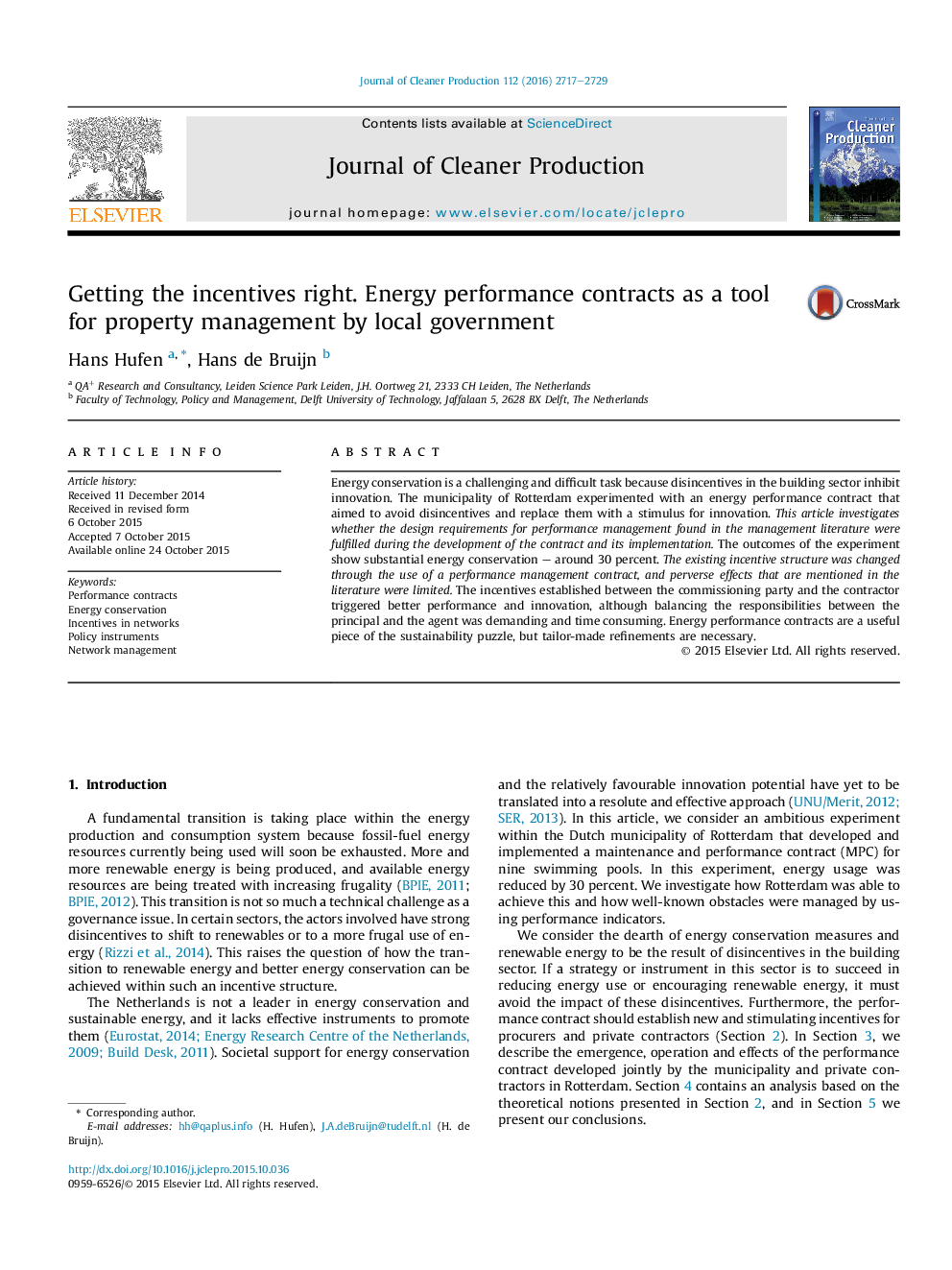| Article ID | Journal | Published Year | Pages | File Type |
|---|---|---|---|---|
| 10687861 | Journal of Cleaner Production | 2016 | 13 Pages |
Abstract
Energy conservation is a challenging and difficult task because disincentives in the building sector inhibit innovation. The municipality of Rotterdam experimented with an energy performance contract that aimed to avoid disincentives and replace them with a stimulus for innovation. This article investigates whether the design requirements for performance management found in the management literature were fulfilled during the development of the contract and its implementation. The outcomes of the experiment show substantial energy conservation - around 30 percent. The existing incentive structure was changed through the use of a performance management contract, and perverse effects that are mentioned in the literature were limited. The incentives established between the commissioning party and the contractor triggered better performance and innovation, although balancing the responsibilities between the principal and the agent was demanding and time consuming. Energy performance contracts are a useful piece of the sustainability puzzle, but tailor-made refinements are necessary.
Related Topics
Physical Sciences and Engineering
Energy
Renewable Energy, Sustainability and the Environment
Authors
Hans Hufen, Hans de Bruijn,
